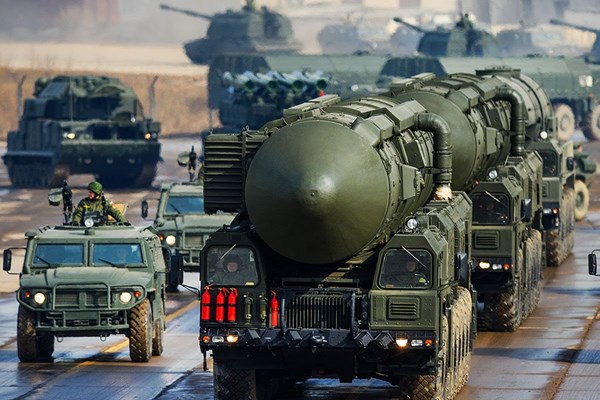Russia considers deploying nuclear weapons in Syria
The United States has crossed a “red line” in its relations with Russia, and the President should consider an asymmetric response – terminating the treaties with Washington on nuclear missiles, and deploying tactical nuclear weapons abroad, e.g. in Syria, stated by Vladimir Gutenev, first deputy chairman of the Russian State Duma committee on economic policy, innovative development and entrepreneurship, to TASS.
According to the MP, such a step would “not only offset sanctions, but also deal counter damage”.
“The pressure on Russia will only intensify – in the area of military technological collaboration, including with regard to the sale of weapons abroad. We see that the Americans are already talking about sanctions against the countries that buy Russian weapons… One should listen to the opinion of several experts, who say that, perhaps, Russia should stop complying with the treaties on the non-proliferation of missile technologies, and also follow the United States’ example and deploy its tactical nuclear weapons abroad. I don’t consider it impossible that theoretically one such country could be Syria, where we have a protected airbase,” Gutenev said.
Another step could be to transition to using gold-pegged cryptocurrency for arms exports, which “China, India and other countries would also be very interested in”.
Another round of sanctions will force Russia to “draw its own red lines,” and the full range of proposed measures “would be a serious argument,” Gutenev commented.
“In a boxing match you can’t only masterfully dodge blows, without delivering counter-blows, especially when the boxing turns into a fight without rules, and the judges (the WTO and other international institutes) don’t intervene,” he explained.
In Gutenev’s opinion, the current sanctions will not be able to cause significant damage to Russia’s defense industry complex. “The program of import substitution has shown very good results, alternative suppliers have been found, and the necessary nomenclature basis for electronics purchased several years in advance. However, it is alarming that the sanctions are not slowing down, and are already acquiring a certain inevitability,” he concluded.
The new sanctions package placed on Russia in accordance with the chemical weapons elimination act of 1991 comes into force on Monday, August 27.
In the first phase, it expands the restrictions on supplying technology, especially aviation technology. Russia is given 3 months to grant UN inspectors access to its facilities where chemical weapons may be being produced and stored. If Russia refuses, then by the end of November, the second round of sanctions will come into force, which could include cutting back on diplomatic relations, prohibiting Aeroflot flights, and a complete trade embargo.
